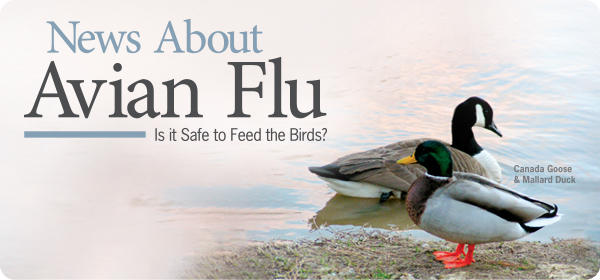
What You Need to Know
Wild Birds Unlimited is closely monitoring the Avian Flu (bird flu) outbreak in the United States and Canada. We are committed to keeping you and your family safe and informed about issues that may affect the hobby of bird feeding. Your safety and the health of birds and wildlife are our primary concern. We are actively connected with the proper wild bird and health experts to keep our customers informed of any developments that could affect safe backyard bird feeding practices.You may have heard about avian influenza (or “bird flu”) and the development of this disease in North America. At this point in time, wildlife and health experts say you may continue feeding the birds. Here are the facts as we know them today.
Since Fall of 2021, a highly pathogenic avian influenza (HPAI H5N1) has been detected in numerous outbreaks in North America. It is a naturally-occurring virus especially prevalent among wild aquatic birds such as ducks, geese and shorebirds and has been shown to affect commercial and backyard poultry with high mortality.
However, according to the Cornell University Wildlife Health Lab, “Passerines [song birds] do not seem susceptible to HPAI and are not thought to play a significant role in spreading this virus. We are not recommending removal of bird feeders at this point.”
And the Institute for Infectious and Zoonotic Diseases at U Penn Vet School states, “According to the USDA, there is no evidence that birdfeeders, or the birds that frequent them, contribute to the spread of HPAI.”
The US Department of Agriculture further states, “HPAI viruses and the illness they cause are not commonly found in wild birds…removing backyard feeders is not somethings USDA specifically recommends to prevent avian influenza unless you also take care of poultry.” Also, the Government of Canada affirms, “The use of bird feeders is still safe but they should be removed from areas that are open to poultry and other domestic animals.”
In addition, the US Centers for Disease Control and Prevention and the Public Health Agency of Canada currently deem H5N1 to be of low human health risk.
To practice the hobby of bird feeding safely and to ensure the birds’ overall health, it is always recommended you clean your bird feeders regularly with a solution of one part bleach and nine parts water.

